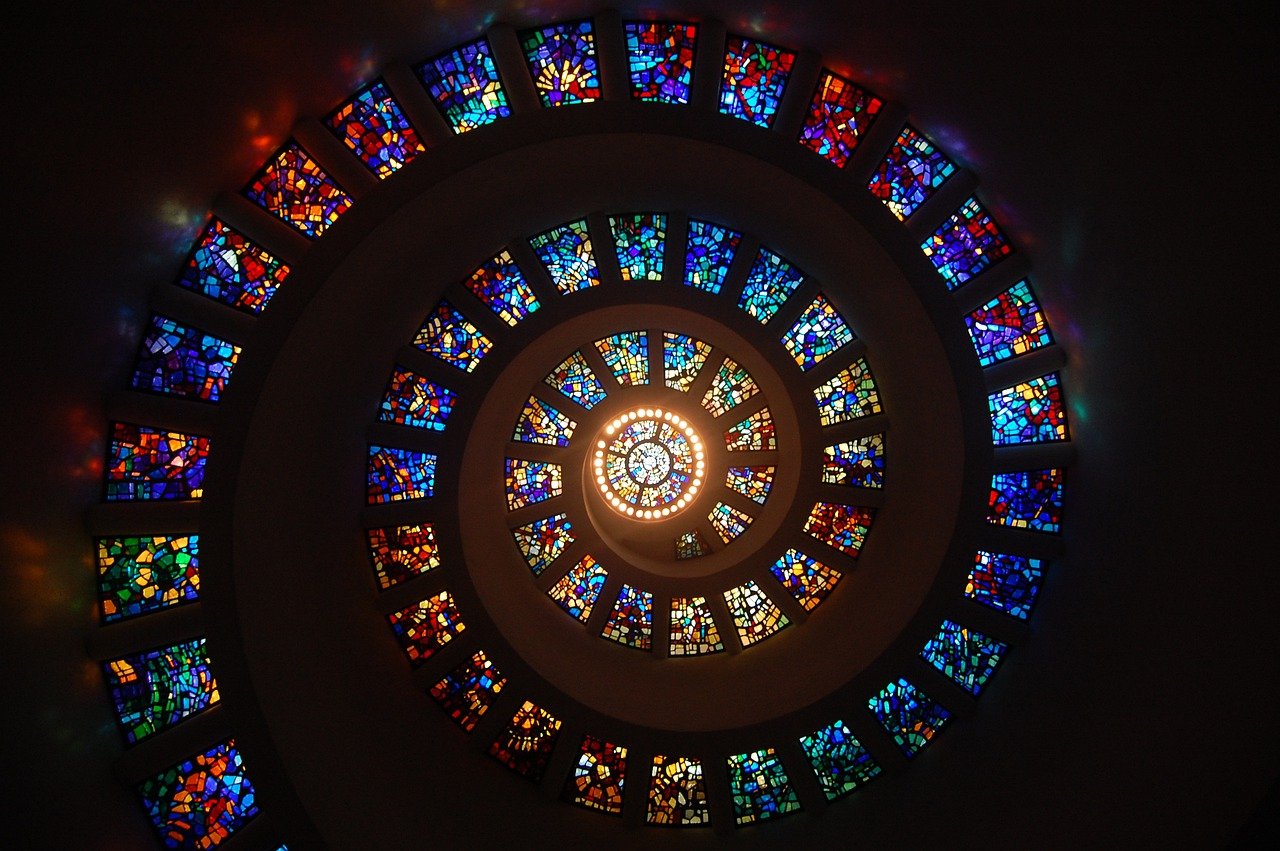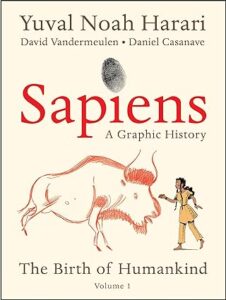When people ask us, “Are spirituality and religion the same or different?”, we often find it difficult to answer.
It may be said that they are “the same” in the sense that they believe in a supernatural power (transcendent being) beyond this world and thereby pursue happiness, but it is also true that spirituality is much lighter than religion.
I think what is light about spirituality is that, unlike religion, it does not require affiliation with an organization and some kind of obligation to do so.
Of course, there are spiritual groups, but they are more like social networking groups, so to speak, and are much looser in terms of “sense of belonging” and “bondage” than religions.
Then again, religion requires “faith” (or rather, it would not be a religion without faith), but spirituality, while believing in supernatural power, is probably not as grandiose as “faith.
Faith” is a word that implies some kind of compulsion, but in spirituality, there is no such compulsion, or rather, compulsion tends to be avoided.
They believe in supernatural beings and power, but they do so on the premise that it is “voluntary. They are not bound by the “commandments” of religion.
In this article, I would like to examine the difference between religion and spirituality, and also to explore the themes of what spirituality is in the broadest sense, and what spirituality truly contributes to human well-being.
Check spirituality in three categories: faith, practice, and belonging
First, I will analyze religion and spiritualism from three perspectives: belief, practice, and belonging.
Then we can say that spirituality tends to be as follows
- Faith: personal
- Practice: personal
- Belonging: tenuous
In short, in general, spiritual culture is characterized by a lack of organizational coercion or a lack of affiliation. In a word, there is a high degree of freedom.
This is the same trend in the real world. In Japan, unlike a decade ago, “loyalty to the company” is becoming less and less common. Young people are more likely to refuse a drinking party if they don’t want to go.
After all, the trend of the times tends to favor individualism and variability.
Still, I believe that human beings are religious beings no matter how far they go.
Yuval Noah Haral, author of the best-selling book “Sapiens” cites religion as a characteristic that distinguishes Homo sapiens (humans) from other animals
In recent years, however, there has been a marked shift away from religion, especially in developed countries.
Reasons may include the following
- Established religions’ doctrines, practices, and organizational management no longer meet the needs of modern people.
- A general individualistic orientation.
- The image of new religions has deteriorated due to the proliferation of cults, etc.
However, as mentioned above, humans are “religious animals,” and as an alternative to religion, spirituality with the following characteristics is becoming more and more preferred.
- Contemporaneous
- Personal
- Light feeling
By the way, Shinran, one of Japan’s leading religious figures of the Kamakura period, stated in his famous “Tannisho” that “Shinran did not even have a single disciple.” The motivation for culticization (collectivization) seems to be tenuous for a religion.
However, as a result, Shinran’s Jodo Shinshu has grown to become the largest religious group in Japan up to the present day. Religion, after all, has always had a strong drive to become a cult.
Achievements in Spiritualism
The Beginning of Modern Spiritualism
So-called “spiritualism” began in 1848 with the Hytheville Incident.
Simply put, the Fox family in Hytheville, USA has been experiencing a ghostly tapping phenomenon.
Although it was only a “ghost phenomenon,” the Fox family gradually began to try to communicate with the ghost. This was the beginning of “spirit world communication.
Then, similar spirit world communications began to take place in various places and gradually became refined as psychic science.
For more information on the evolution of Spiritualism since the Hytheville incident, see “One Hundred Years of Modern Spiritualism,” by Ernest Thompson.
Since it is not the purpose of this article to examine the history of Spiritualism, we will be skimming over how Spiritualism has progressed since the Hytheville incident.
The focus of modern spiritualism is on “spiritual evolution
I think the trend of modern spiritualism was ultimately born as the antithesis of modern and contemporary materialism.
This is not just what I think, but what is actually said by spiritual people in various “spirit world communications.
If the earth is steeped in materialism, the very reason for its existence in the first place is in jeopardy.
The original role of the earthly world is to promote the relative “spiritual awakening” of the soul as it inhabits the body and spends time in the material world.
Under the fetters of the material world, in Buddhist terms it is called “suffering (dukkha),” but it is precisely under these conditions that human beings deepen their search for “what is true nature” and “what is the spiritual self.
Here, “spiritual evolution” will be encouraged.
Originally, it was the role of religion to teach these things, but as traditional religions have gradually become more and more skeletal, they are no longer able to answer the various issues of modern times, nor are they able to properly answer the nature of spiritual truths.
It is fair to say that modern spiritualism has emerged as a complement to such tendencies.
Emanuel Swedenborg is sometimes cited as the forerunner of modern spiritualism.
Swedenborg was one of the foremost scientists of the 18th century, but he changed direction at one point and devoted himself to spreading spiritual truths with his extraordinary psychic abilities.
His contemporary Immanuel Kant also had to admit Swedenborg’s psychic abilities.
Swedenborg says, “This life is a training ground for the testing and strengthening of the soul. Here, man is purified from the material to the spiritual.
That is, he defined the earth as a place of spiritual evolution. No, not only on earth, but human life is always in the process of spiritual evolution.
I believe this is the true face of spiritualism. Spiritual evolution is the key word.
The Problem with Modern “Spirituality
By the way, spiritual evolution literally means “a person truly improving spiritually,” right?
For this purpose, the hardships and sufferings on earth will be affirmed as a means to an end.
If we aim only for peace and tranquility, as if all we need to do is to eliminate earthly hardships and sufferings, then this is not spiritualism in its true sense.
Contentment on Earth <Spiritual Evolution
Thus, the main focus is solely on spiritual evolution. And this is the theory of peace or happiness in the more essential sense of the word.
However, what is the reality of the various spiritual practices that have become popular in recent years?
Belief in supernatural power is a natural part of spirituality, but its purpose is simply to provide comfort in this life.
There are many kinds of contentment in this life, such as accumulation of wealth, success in life, honor, fulfillment of love…etc. To put it differently, even “peace of mind” is a kind of contentment in this life.
To put it simply, even “peace of mind” is a kind of contentment in this life.
However, if contentment itself is the most important thing, then it would have been better if we had never been born on earth in the first place.
Rather, spiritualism should have been solely “placing the point of happiness in spiritual evolution.
And in fact, this “happiness point to spiritual evolution” is an unbeatable path for the soul.
In the contentment of this world (worldly gain), even if it is temporarily fulfilled, it can be broken again, right? It is a world of “winning and losing,” so to speak.
But what if the point of happiness is spiritual evolution?
- Good things happen → accept them honestly and gratefully as the fruit of spiritual evolution
- Bad things happen → Use them as an opportunity to reflect and gain wisdom. Or, in the process of overcoming them, strengthen the legs and feet of the soul
In this way, no matter what the external environment is, we can turn everything into a theory of happiness, right? This is the merit of “placing the happiness point in spiritual evolution.
This is the path of undefeat. A world will develop in which there is absolutely no losing, only winning.
This is why I have criticized modern spirituality in various articles.
I call it “witchcraft spirituality”
Although they are called “spiritual,” they are in fact “non-spiritual,” in short, in this life.
- Means: Supernatural power
- Purpose: Worldly comfort
And as noted above, worldly comfort can never be a true theory of happiness.
I believe that even such witchcraft spirituality is better than atheism and materialism, and in fact, it plays a valuable role as a sign that “there is a spiritual and supernatural world” so that those of us living in this world do not fall into such a trap.
However, from the perspective of the theory of happiness that spiritualism is supposed to be able to provide, it is quite ephemeral, so I am saying, “This (truth spirituality) will bring you more happiness than that (witchcraft spirituality).
After all, what is the “difference between religion and spirituality”?
As I have mentioned in detail, if the focus of spirituality is on “spiritual evolution,” I think it is fair to say that there is no essential difference between religion and spirituality.
Spirituality has emerged in the modern era (since the 19th century) as a complement to aspects of traditional religions that have not been adequately explained.
So, the differences are roughly organized in the three categories of “faith, practice, and belonging” mentioned above.
The “easy” pitfall of spirituality
However, there is one thing about spirituality that I feel is dangerous, as I see it in the field.
It is that because spirituality is individualistic, it is easily replaced by an “ego-centered worldview.
In Neo Buddhism, the difference between a religion or spirituality being advanced or not is measured by whether it has a divine reality-centered or ego-centered worldview.
As mentioned above, in witchcraft spirituality, the “goal” is to achieve contentment in one’s own life, so in the extreme, divine beings, angels, supernatural powers, etc., become “means” to an end.
In doing so, we fall into the easy feeling of choosing a divine reality for the convenience of the human side, like a la carte cooking, “This week’s lucky angel is the Archangel Michael”. Herein lies the danger.
Of course, even religion has the same dangers, since there are religions of profit.
However, the pitfalls are probably greater in spirituality than in religion because of its more individualistic and light feeling.
This may seem off topic, but in friendships through social networking sites, you block people when you don’t like something a little bit.
However, in the real world, even if you have a fight with a friend, you still have to see each other again… and as a result, even if you have a fight or disagreement, it can be a good opportunity to deepen your friendship with each other.
In a social networking-centered environment, the depth of such friendships tends to be short-lived.
In religious organizations, when interpersonal differences arise within the organization, or when questions of faith arise, it is not always easy to say “good-bye.
I feel that in religious organizations, people deepen their faith and teaching by struggling with each other and with their relationships.
I think that the religious are gradually becoming more truthful in these areas because they are not so easy.
Ego-centered worldview or Divine Reality-centered worldview
Let me get back to the story.
For my part, I think it is more essential to understand the difference between religion and spirituality (a statement I have made many times in Neo Buddhism) as “the difference between an ego-centered worldview and a divine reality-centered worldview” rather than “the difference between religion and spirituality”.
- Ego-centered worldview: Divine reality exists for the sake of man
- Divine reality-centered worldview: Man exists to serve God, man, and the world
Thus, it is the exact opposite direction.
If we focus on the “essence” of religion and spirituality, which is “spiritual evolution,” I think the latter, “a worldview centered on divine reality,” is the only way to go.
In the “ego-centered worldview,” one cannot escape the feeling of selfishness, as if one is using the divine reality (supernatural existence) for one’s own convenience.
Let’s show it again in a simplified form.
- Ego-centered worldview: What can the world do for me?
- Divine reality-centered worldview: What can I do for the world?
When you compare the two, which do you feel is spiritually superior in the true sense of the word?
The moral law in the back of your mind may be whispering to you, “Choose the latter, for it is the path that promotes spiritual evolution and true happiness.
I would like to conclude by recommending that you grasp a worldview centered on divine reality, in other words, a conversion from witchcraft to truth.











Comments